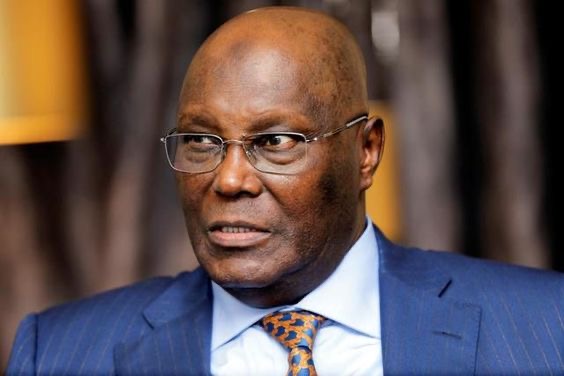“The Hottest Places in Hell Are Reserved for Those Who, in Times of Great Moral Crisis, Maintain Their Neutrality” — Dante Alighieri
In the face of the suffering that pervades today’s Nigeria, neutrality is no longer an option. The hardship on the streets, the shattered dreams of our youth, and the deepening chasm between survival and dignity demands that we take a stand. That stand, for many of us, is with Atiku Abubakar — a statesman whose track record offers a glimmer of hope in a nation gasping for leadership.
From 1999 to 2007, when Atiku Abubakar served as Vice President under President Olusegun Obasanjo, Nigeria saw a clear and measurable leap in economic growth and quality of life. During this period, the country’s GDP grew at an average rate of 6.01%, a significant rebound from the stagnation of the preceding military regimes. Inflation dropped from 29.3% in 1996 to 8.2% in 2007, helping the average Nigerian better afford food, healthcare, and transportation. Foreign Direct Investment (FDI) surged from $1.14 billion in 1999 to over $6 billion in 2007, buoyed by the privatization policies championed by Atiku through the Bureau of Public Enterprises (BPE).
Urban poverty saw a notable decline. According to the National Bureau of Statistics, urban poverty fell from 62% in 1996 to 37.8% in 2004, and further improvements followed in subsequent years. Agriculture — the backbone of rural Nigeria — received unprecedented attention. The Presidential Initiative on Cassava and other value-chain driven projects resulted in a near doubling of cassava exports between 2002 and 2006. Atiku’s influence in economic policy circles championed deregulation and infrastructure investments, opening up the telecommunications sector and giving rise to GSM — a gamechanger for small businesses, communication, and job creation.

Contrast this era with the failed legacy of Bola Ahmed Tinubu. Despite the mythology around his time as Lagos Governor from 1999 to 2007, a closer look reveals a more troubling legacy. According to data from the World Health Organization (WHO), Lagos ranks among the top 10 most air-polluted cities in Africa, with PM2.5 levels averaging 68.2 µg/m³ — far above the safe limit of 10 µg/m³. This particulate matter, emitted from uncontrolled transportation, generators, and industrial emissions, is directly linked to respiratory illnesses, cancer, and premature death. Much of the poor environmental policy that laid this foundation came during Tinubu’s tenure and was worsened by subsequent administrations cut from the same cloth.
Since assuming the presidency in May 2023, Tinubu’s economic policies have devastated the already fragile livelihoods of Nigerians. His decision to remove fuel subsidies overnight — without a safety net — led to a fuel price increase from ₦185 to over ₦830 per litre, igniting hyperinflation across the board. The naira has collapsed, trading at over ₦1,540 to $1 as of mid-2025, while inflation remains stuck above 33%, with food inflation over 40%. According to SBM Intelligence, over 133 million Nigerians are now multidimensionally poor, up from 91 million in 2022. The Nigeria Labour Congress reports that 70% of Nigerian workers now earn less than ₦60,000 per month, a wage completely eroded by inflation and currency devaluation.
Worse still is the erosion of hope. University graduates roam the streets without jobs, the JAMB cut-off marks have been lowered to embarrassing levels, and hospitals are turning away patients due to lack of power and equipment. Tinubu’s version of economic reform has been nothing short of economic trauma — wrapped in fancy press statements, but void of any real relief. His “Renewed Hope” agenda has become a cruel irony. Nigerians now joke that the only thing renewed is their suffering.
This is not just about economic metrics. It is about a regime that has weaponized poverty, muzzled dissent, and turned governance into a game of cronyism. The CBN has lost credibility, the judiciary is under suspicion, and democracy itself is being assaulted by the instruments of fear and propaganda. From petrol to pepper, rice to rent — everything has become unaffordable. Tinubu has taken a struggling economy and driven it into a ditch.
In contrast, Atiku’s record is not a myth — it is a lived experience. He helped pioneer economic liberalization that opened Nigeria to global capital. His pro-business stance combined with social investment initiatives helped spark job creation, innovation, and regional development. Nigerians remember the days when a ₦5,000 salary could comfortably take you through a month, and when transport costs didn’t ruin your finances. They remember when the naira was stable and when basic goods were within reach.
As Generation Z — digitally native, intellectually restless, and deeply concerned about our future — we refuse to remain neutral. We have studied the data, lived the pain, and now we are organizing. From the universities in Ibadan to the tech hubs in Yaba, from the farms in Nasarawa to the markets in Onitsha, we are mobilizing to reclaim our nation’s soul.
Our verdict is clear: we endorse Atiku Abubakar for President in 2027. He is not perfect, but he represents the competence, experience, and vision Nigeria desperately needs. We cannot afford another four years of hunger, darkness, and despair. Our future is at stake — and in times of moral crisis, neutrality is complicity.
Let it be known: the youth have chosen a side — and that side is Atiku.
